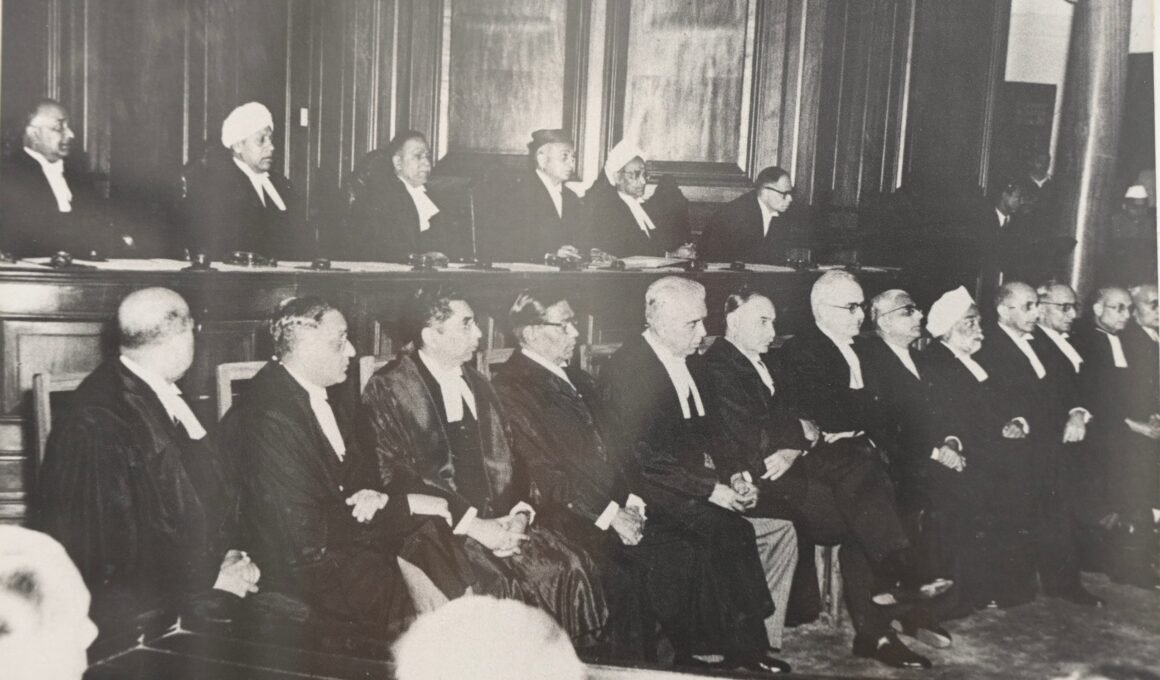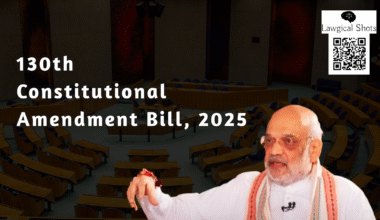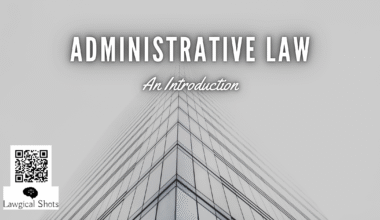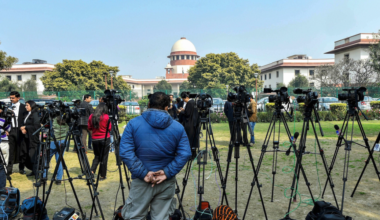Independence of Judiciary under Indian Constitution is one of the major assets which empowers the independent India. If Judges can decide a dispute without any second thoughts fearing about their job or saddening those in power, that is the only way they can uphold justice. Otherwise, imagine a Judge who is trying to please the authorities to get a promotion. Can such a Judge ever be unbiased while dealing with the legal interests of ordinary men and women? Of course not!! The said aspect was foreseen by the makers of the Constitution, who deemed it crucial to incorporate Constitutional Provisions for Independence of Judiciary in India. Here, we discuss in detail about the Independent Judiciary and its distinctive attributes.
Independence of Judiciary
When we talk about independent Judiciary, it is not just the independence of the institution of Judiciary. It also includes the independence of Judges, who constitute the Judiciary. From this perspective, the Independence of Judiciary can be classified into two categories – Institutional and Decisional, as elaborated below.
Institutional Independence of Judiciary
As aimed through the separation of powers under the Indian Constitution, institutional independence of Judiciary can be understood when the three branches of the democratic government are successful at keeping the executive and legislative branches out of the Court affairs.
Decisional Independence of Judiciary
Courts in India are all about the decisions they make in order to uphold Justice and Rule of Law. Decisional independence of Judiciary is the ideal situation wherein decision making, exists free from any undue influence. It means that no outside agents acting with partisan or special interest/motivations can affect the decision of the Courts, but those motivated by the demands and ideals of justice.
Know how the Supreme Court and High Courts address the 5 types of Constitutional writs.
Why do we need Independence of Judiciary?
There are several reasons which support the reasoning for why Judiciary being free from any legislature or executive manipulation is a must for any democracy. Most crucial of them are discussed below:
- An independent Judiciary acts as the watchdog of democracy.
- It interprets the provisions of the Constitution in its essence.
- In order to deliver judicial justice, it first needs to be free from any influence.
- For the protection of law and order, an independent judiciary is inevitable.
Constitutional Provisions for Independence of Judiciary in India
Separation of Powers
Enshrined under Part IV regarding Directive Principles of State Policy, Article 50 of Constitution of India provides for separation of Judiciary from the Executive. The provision entrusts the State with the responsibility to delineate the Judiciary from the Executive in the public services of the State. The essence of the right to equality is reflected through separation of powers. Because if there is rule of law, ordinary people and those in power shall be treated the same, regardless of whether they are part of the legislature or some ultra-rich businessmen.
Power of Contempt of Court
Article 129 of the Constitution states that the Supreme Court is a Court of Record having powers to punish for its contempt. A similar provision is there under Article 215 of the Indian Constitution depicting the contempt powers of the High Court.
No In-House Discussion
Article 121 of the Constitution restricts the Parliament from discussing the conduct of Judges of either of the Supreme Court or the High Courts pertaining to discharge of duties. There is an exception that the same may only be done through a motion for presenting an address to the President seeking removal of the Judge. Similar immunity is enjoyed under the provision for parliamentary privileges.
Protection of Power of Courts
What we know is that the decisions of Courts can be overruled by the Higher Courts. Judgments and orders passed by the Lower Courts can be reversed by the Higher Courts, and when the matter reaches the Supreme Court, there again the larger benches can consider a cause and overrule the pre-established laws. However, the jurisdiction and powers of the Supreme Court cannot be curtailed by the Parliament. For example, if the Supreme Court has held a certain legal provision as violative of the Constitution, the Parliament cannot reenact the same. The Parliament may add to/extend the decision of the Supreme Court, but cannot curtail the powers of the Apex Court.
Appointment of Judges
Unlike most of the other Constitutional positions, Judges of the Supreme Court and High Courts are not elected by the people. Judges of the Supreme Court are appointed by the President of India after consultation with Judges of the Supreme Court, particularly the Chief Justice, and High Court as may deem necessary. Judges of the High Court are appointed by the President after consultation with the Chief Justice of India, Governor of the State and the High Court Chief Justice. Independence of Judiciary in India is also confirmed through security of tenure of the Judges, since they cannot be removed from office except in certain conditions. The salaries and allowances of Judges of the Supreme Court and High Courts are also ascertained through laws.
No Practice after Retirement
Article 124(7) of Constitution prohibits any Supreme Court Judge from practicing before any Court or authority in India. Similarly, Article 220 restricts High Court Judges from serving in the same High Court where they served as a permanent Judge. Such High Court Judges can practice before the Supreme Court or other Higher Courts. The idea behind prohibiting Judges from practice after retirement is to uphold the spirit of independent Judiciary, free from any influence.
Importance of Independent Judiciary in Democracy
Judges make up the Judiciary and are responsible for upholding the sense of fairness and impartiality in the decision making process. They are entrusted with upholding the rule of law. It is an independent Judiciary which can hold the government accountable while protecting the individual rights. In the absence of all this, democracy will be a mere sham with no force. Therefore, to build public confidence in people’s government system, Independent Judiciary is just unavoidable.








